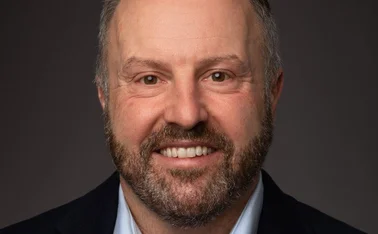
Claims Club Monthly Missive: Learning from Bethany Probert

It seems that barely a month passes without the industry suffering publicity bad enough to harm the reputation of an individual firm or, worse still, the entire industry.
Sometimes the criticism of the sector is unjustified, misses the mark or scratches the surface of a deeper problem. But at other times it is wholly inevitable and avoidable, even if the company had the best interests of its shareholders in mind.
This year we have had the Dispatches documentary and the bad press it brought the motor insurance market and Direct Line Group which was targeted specifically during the broadcast. I would put this in the unjustified category given the brevity of the programme and its failure to get a grip on some of the broader issues it raised.
However, DLG brand Churchill, has encountered bad publicity over the case of Bethany Probert. This publicity was ultimately inevitable and avoidable.
Power of social media
Negative publicity has again shown the power of social media, and underlined the fact that insurers must be mindful of the consequences of their actions. The conduct of industry firms can trigger a reaction that causes more harm than good, especially from a brand and reputation standpoint.
In case you are unaware of Probert, Churchill's parent DLG has been granted leave to appeal the judgment in the case. In December 2009, when she was 13-years-old Bethany was hit by a car driven by one of the insurer's customers while walking home from a local riding stables in near darkness.
Last year a High Court judge cleared her of any contributory negligence, but the insurer is holding firm that the driver was not wholly responsible for a number of reasons, including the fact that the teenager was walking on the wrong side of the road, listening to music and - a point that has been picked up most prominently by the media - not wearing a high visibility jacket.
Speaking to industry insiders over the last month the words "brave," "bemused" and "short-sighted" have been used to describe DLG's stance. One source said that if DLG wanted to fight a high-profile case on the issue of contributory negligence over similar circumstances it could have picked a better fight.
It is a simple fact of life that if Churchill was arguing over life-changing injuries to a 40 year old man who was walking back from the pub along a country lane there probably would not be as much vitriol directed its way.
Two statements in two days
In an initial statement published on 7 February, Churchill said: "This case is tragic, but the law is clear that the level of compensation must reflect the facts and circumstances of the case. The court has yet to decide on the final compensation the claimant is to receive.
"We have accepted that our insured driver was largely responsible for this accident. We are asking the Court of Appeal to consider whether or not the judge was correct in finding that the claimant should bear no blame whatsoever for what happened. We will abide by whatever decision the Court of Appeal makes."
A day after its initial statement Churchill published a much longer explanation for its actions having been stung by a backlash in the press. "Earlier today we stated that we have been in contact with Bethany's lawyers. We told them that we were concerned that we had learned through the media, rather than through them, that she needed further funding for care and accommodation.
"In the course of that contact we have learned that since November 2012 Bethany's lawyers had information that would have enabled us to make a further interim payment. This information has only today been given to Churchill.
"To help rectify this delay, Churchill has today fast-tracked its processes. Since this request fulfills our standard criteria, a payment of a further £750k for Bethany's care and accommodation has been approved."
Damage already done
A thoughtful gesture, but the damage had been done. DLG was not only under fire in the press but also on Twitter and Facebook. Below are a few examples of comments about the firm on the Facebook page for the Churchill brand.
- "The slugs still haven't decided to withdraw the appeal. You are sick evil people, I hope you get what you deserve and go bust"
- "Bethany's family don't need the stress, and you don't need the loss of custom this whole debacle is bringing you. Pay the poor girl and be done with it."
- "Even after all the hate, Churchill won't back down, how do you call yourselves human, even dogs are capable of sympathy ... I hope the greed is worth it when you file for bankruptcy."
To these people, the fact Churchill had already accepted its driver "was largely responsible" was not good enough. The fact it was not aware of the all the facts was of little consequence. The roles had been cast and Churchill - a star of many a Christmas panto past - was certainly the villain.
Trial by social media
This is the latest example of how an insurance industry misfire was magnified by social media. How the insurance industry engages with the likes of Twitter and Facebook, as well as the value of live uncensored feedback are certainly hot topics.
With this in mind we are putting together a session on the role of social media and live customer feedback for the next Claims Club meeting on the 18 April with Reevo founder Richard Hanson already confirmed.
At last week's Digital Insurance Strategy conference Consumer Intelligence's chief executive Ian Hughes was very forthright in the view that insurers should stay away from social media, because no one was doing it well. Do you agree? If you have any views ahead of the Claims Club session I would love to hear from you.
Role of the broker
There has also been a lot of interest in the growing role of brokers in the claims process with recent high profile reports by The British Insurance Brokers' Association and Gracechurch grabbing significant attention.
So we will be having a discussion on this subject with Gracechurch CEO Ben Bolton and Towergate group claims director Simon Gifford already agreeing to join the panel.
Finally, to wrap up I must mention that BBC4 will start to screen the brilliant Parks and Recreation this week (March 6). Give it a chance (it really starts to gather pace by series two) and I am sure you will be as hooked as me.
Regards,
Jonathan Swift
Post Claims Club chair
Only users who have a paid subscription or are part of a corporate subscription are able to print or copy content.
To access these options, along with all other subscription benefits, please contact info@postonline.co.uk or view our subscription options here: http://subscriptions.postonline.co.uk/subscribe
You are currently unable to print this content. Please contact info@postonline.co.uk to find out more.
You are currently unable to copy this content. Please contact info@postonline.co.uk to find out more.
Copyright Infopro Digital Limited. All rights reserved.
You may share this content using our article tools. Printing this content is for the sole use of the Authorised User (named subscriber), as outlined in our terms and conditions - https://www.infopro-insight.com/terms-conditions/insight-subscriptions/
If you would like to purchase additional rights please email info@postonline.co.uk
Copyright Infopro Digital Limited. All rights reserved.
You may share this content using our article tools. Copying this content is for the sole use of the Authorised User (named subscriber), as outlined in our terms and conditions - https://www.infopro-insight.com/terms-conditions/insight-subscriptions/
If you would like to purchase additional rights please email info@postonline.co.uk
Most read
- Esure offers customers six-months free cover for latest tech glitch
- Big Interview: Jason Storah, Aviva
- Copart confirms delays to Luton Airport salvage operation








